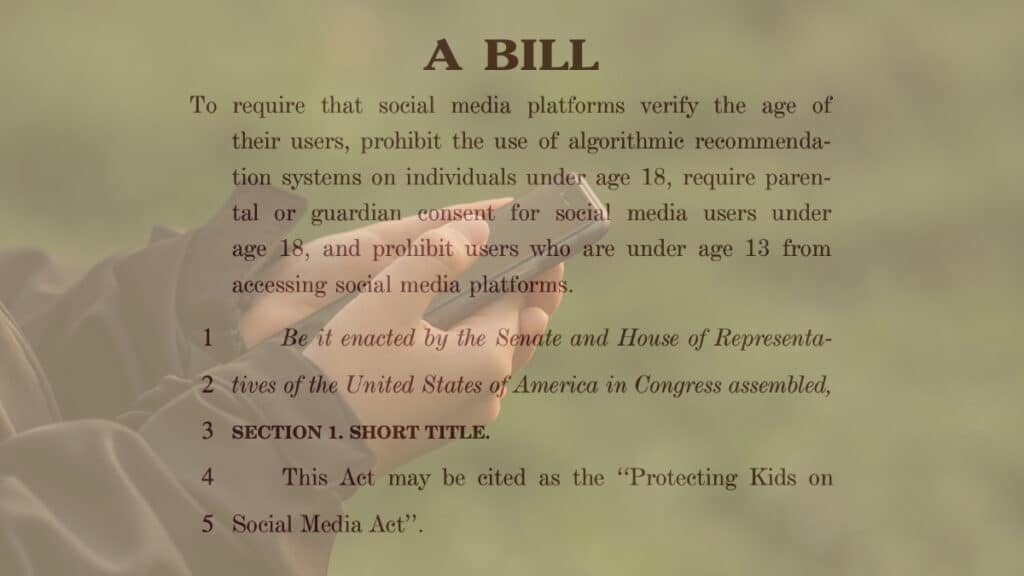U.S. Senators Debut Protecting Kids on Social Media Act
Justin Hendrix / Apr 26, 2023Justin Hendrix is CEO and Editor of Tech Policy Press.

Senators Brian Schatz (D-HI), Tom Cotton (R-AR), Chris Murphy (D-CT), and Katie Britt (R-AL) today introduced the "Protecting Kids on Social Media Act," which is says its purpose is to:
To require that social media platforms verify the age of their users, prohibit the use of algorithmic recommendation systems on individuals under age 18, require parental or guardian consent for social media users under age 18, and prohibit users who are under age 13 from accessing social media platforms.
“The growing evidence is clear: social media is making kids more depressed and wreaking havoc on their mental health. While kids are suffering, social media companies are profiting. This needs to stop,” said Senator Schatz in a press statement. “Our bill will help us stop the growing social media health crisis among kids by setting a minimum age and preventing companies from using algorithms to automatically feed them addictive content based on their personal information.”
The bill excludes a variety of digital media products and services not designated as social media, including video conferencing platforms, subscription content services, video game platforms, news sites, travel and commerce sites, educational platforms, messaging services, and other interactive services that deliver content to an end user, presumably such as chatbots.
Social media sites must take "reasonable steps" beyond "merely requiring attestation" of a user's age, "taking into account existing age verification technologies."
Information gathered for age verification cannot be retained or used for any other purpose, and there is no requirement for the use of government IDs.
Existing accounts enjoy a grace period of two years, after which they must be verified. Children under age 13 may view social media sites as long as they are not required to have an account.
The bill does require parental or guardian consent for minors to establish accounts, and that consent must be possible to revoke. Algorithmic recommendations based on age data are prohibited, but contextual data can be utilized to make recommendations.
The bill also would task the Commerce Department with establishing a "Secure Digital Identification Pilot Program" that would permit parents and guardians to verify their relationship to a minor across participating platforms. Participation in this temporary program is intended to be voluntary, and their are restrictions on the retention and use of data for the program.
The Federal Trade Commission (FTC) is tasked with enforcement, and state attorneys general can bring claims.
This piece will be updated.
Authors
